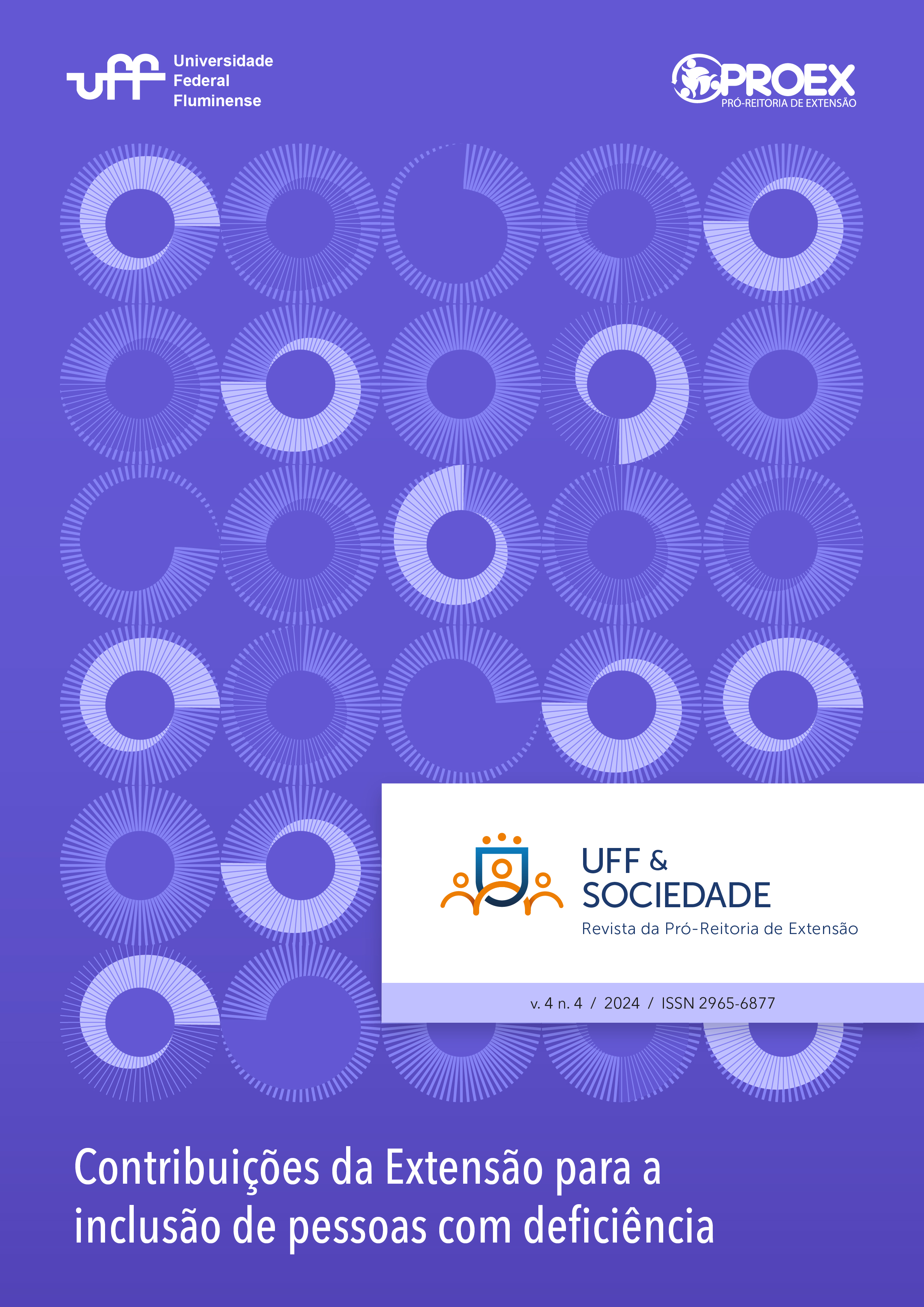Active Citizenship
rights of people with disabilities under discussion in university extension
Keywords:
Person with disability, University extension, RightsAbstract
The production of this work is an imminent consequence of the debates promoted throughout the extension action “Active Citizenship: rights of people with disabilities in debate” linked to the Extension Program “Direito do Futuro”, in 2023. The core of this article is to demonstrate the need to promote inclusion and equal conditions for those who find themselves on the margins of society, establishing the crucial role of the University in this scenario. In this sense, the object of this article is the fundamental discussion regarding policies to promote the effective participation of everyone in society, dealing here with people with disabilities and their historical and political trajectory and the corresponding legal protection, throughout recent years. In parallel, there is a presentation of the useful activities developed during the project, in which various themes were discussed regarding people with disabilities and their participation in society. To this end, a qualitative descriptive methodology was used, through research analysis, as well as data collected from the Project's monthly meetings, with the participation of distinguished guests to discuss the themes, in addition to the participation of the entire community, not just from the academic community, who were interested in the themes and approaches of the meetings. Through meetings that culminate in activities developed within the scope of research and teaching at the University, the aim is to demonstrate the importance of promoting such activities to achieve inclusion and encourage the implementation of full citizenship for people with disabilities.
References
BRASIL. Constituição (1988). Constituição da República Federativa do Brasil. Brasília, DF: Senado Federal, 1988.
BRASIL. Lei nº 10.406, de 10 de janeiro de 2002. Institui o Código Civil. Diário Oficial da União, Brasília, DF, 11 jan. 2002.
D’AQUINO, Lúcia Souza. Os Regimes De Capacidade De Fato: Desafios Do Novo Direito Das Pessoas Com Deficiência. Revista Direitos Sociais e Políticas Públicas (UNIFAFIBE), [online], v. 5, n. 2, p. 771-792, 2017. DOI: DOI: http://dx.doi.org/10.25245/rdspp.v5i2.137. Acesso em 14 de junho de 2024.
FERRAZ, Carolina Valença; LEITE, Glauber Salomão. A proteção jurídica da pessoa com deficiência como uma questão de direitos humanos. In: FERRAZ, Carolina Valença; LEITE, Glauber Salomão (coords.). Direito à diversidade. São Paulo: Atlas, 2015, p. 93-113.
FERRAZ, Carolina Valença; LEITE, Glauber Salomão; NEWTON, Paulla Christianne da Costa (Coords.). Cidadania Plural e Diversidade: a construção do princípio fundamental da igualdade nas diferenças. São Paulo: Verbatim, 2012.
GALINDO, Bruno. O direito antidiscriminatório entre a forma e a substância: igualdade material e proteção de grupos vulneráveis pelo reconhecimento da diferença. In: FERRAZ, Carolina Valença; LEITE, Glauber Salomão (coords.). Direito à diversidade. São Paulo: Atlas, 2015. p. 43-60.
IBGE. Instituto Brasileiro de Geografia e Estatística, Coordenação de Trabalho e Rendimento. Pesquisa nacional de saúde: 2019: ciclos de vida. Rio de Janeiro: IBGE, 2021. 139p.
SASSAKI, Romeu Kazumi. Nada sobre nós, sem nós: Da integração à inclusão – Parte 1. Revista Nacional de Reabilitação, [S. l], n. 57, p. 8-16, jul./ago. 2007a. Disponível em: https://www.sinprodf.org.br/wp-content/uploads/2012/01/nada-sobre-n%C3%93s-sem-n%C3%93s1.pdf. Acesso em 6 de junho de 2024.
SASSAKI, Romeu Kazumi. Nada sobre nós, sem nós: Da integração à inclusão – Parte 2. Revista Nacional de Reabilitação, [S. l.], n. 58, p. 20-30, set./out. 2007b. Disponível em: https://www.sinprodf.org.br/wp-content/uploads/2012/01/nada-sobre-n%C3%93s-sem-n%C3%93s2.pdf. Acesso em 6 de junho de 2024.
TSE. Tribunal Superior Eleitoral. Tabulação especial solicitada e Repositório de dados eleitorais. Disponível em http://www.tse.jus.br/eleicoes/estatisticas/repositorio-de-dados-eleitorais-1/repositorio-de-dados-eleitorais. Acesso em: 22 de fevereiro de 2024.






